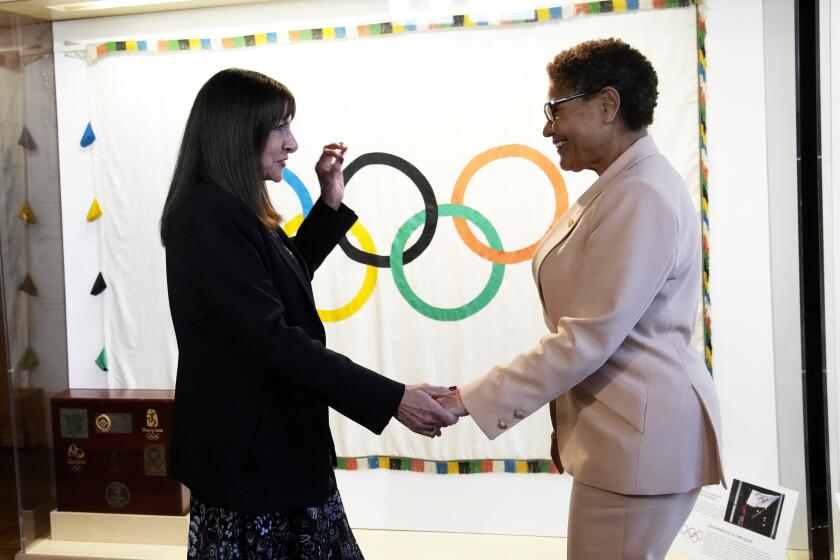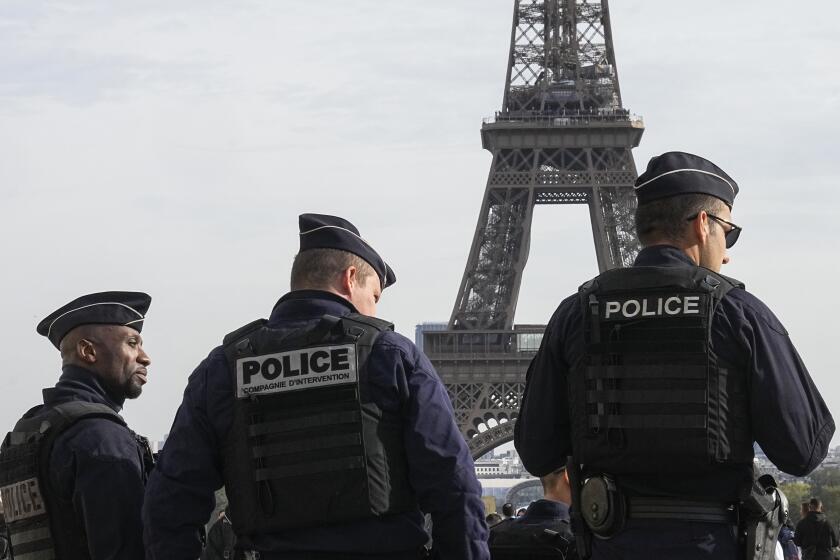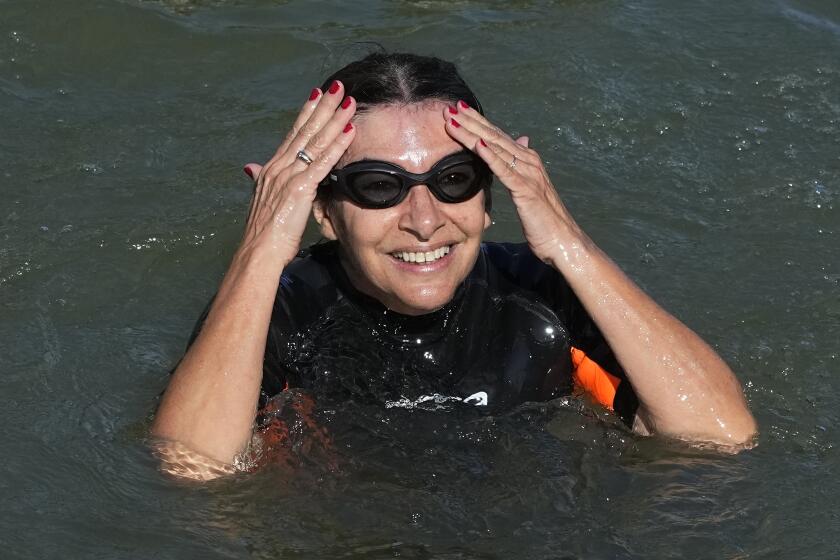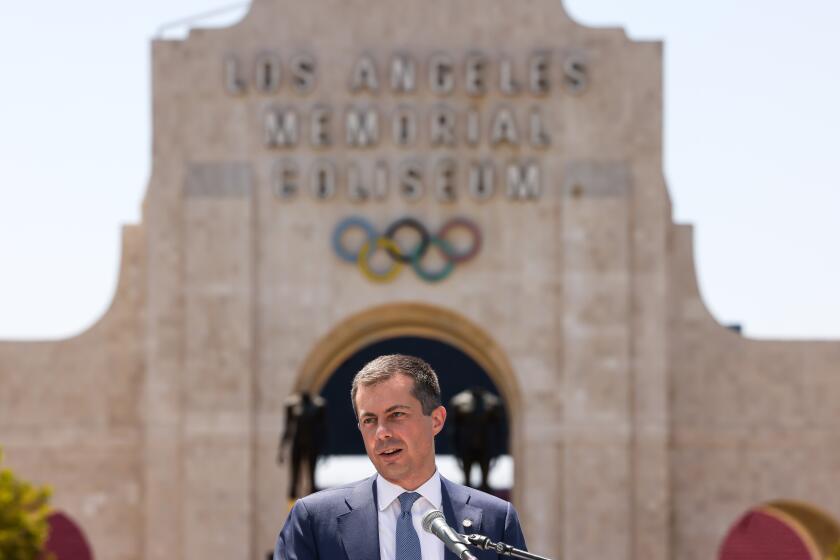The Olympics promise to be socially responsible. How’s that working out?
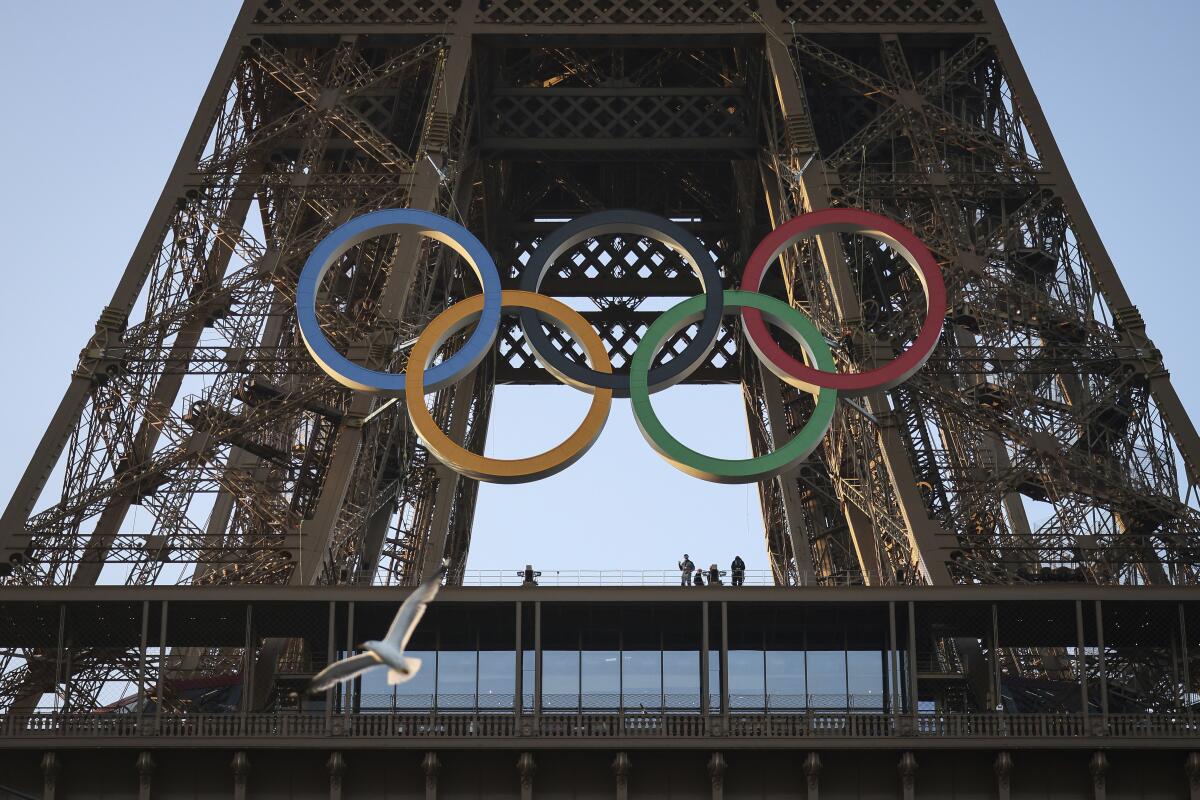
- Share via
Olympic host cities make promises that are all but impossible to keep, and in recent years, the organizers’ wishful thinking about housing and neighborhood redevelopment has been one of the cruelest Olympic disappointments. As the 2024 Paris Games approach, we are seeing it all over again — displacement, gentrification and the unhoused “voluntarily” lured elsewhere with assurances of help that never materializes. What will it mean for Los Angeles, when the Games arrive in 2028?
In 2017, when Paris and Los Angeles were the last cities standing as potential Olympic sites — Boston, Budapest, Hamburg and Rome all withdrew — the organizers promised to stage Games that sidestepped the vexing social problems that emerged in Seoul, Rio, Tokyo and London.
With L.A. hosting the Summer Games in 2028, city and county leaders are heading to the City of Light to see what lessons L.A. will need to learn.
Paris bidders vowed to rejuvenate the city’s banlieues, replenishing the housing stock by building an Olympic Village for the athletes in Seine-Saint-Denis, one of Paris’ poorest districts, and converting large swaths of it into so-called social housing. In Los Angeles, then-Mayor Eric Garcetti stated on late-night television, “I’m confident by the time the Olympics come, we can end homelessness on the streets of L.A.”
How has it worked in Paris?
In the lead up to the Games, French security officials are executing a “relocation plan” for the city’s migrants, refugees and unhoused people, expelling them from their encampments and squats — and from fragile connections to jobs and community — and escorting them onto buses that take them to 10 cities around France where temporary shelters and services have supposedly been organized. A government official told the New York Times the number was about 5,000. Human rights groups expect many more of the estimated 100,000 Parisians without steady housing to be exported as far from Olympic venues as possible.
A delegation of 32 LAPD reserve officers and one supervisor are expected to travel to the French capital later this month for the Olympic Games.
Officially, the relocations are meant to lessen pressure on the asylum application process and to help migrants more efficiently apply for refugee status. But of course, this is all about optics. Most of those banished from Paris won’t qualify for permanent housing in their new locations, and as for asylum status, one lawyer in France calls the busing program “an antechamber to deportation.”
A recent report by a Parisian group whose name translates as the Other Side of the Medal documented a nearly 39% surge in encampment evictions in the City of Light in the year leading up to the Games, which open Friday. The researchers found that more than 12,500 people were displaced from Paris in 2023-24 alone. They have dubbed it “nettoyage social,” or social cleansing.
The French government has denied a connection between the Olympics and intensified displacement. But an email from a government official, first reported by the French newspaper L’Equipe, stated that the objective of the mass clearances was to “identify people on the street in sites near Olympic venues” and remove them before the Games commence. French National Assembly member Aurélie Trouvé told us that the program “is definitely connected to the Games and the need to offer a ‘clean,’ idealized image, even though it means that thousands of people are pushed afar.”
After months of anticipation, Paris Mayor Anne Hidalgo took a dip in the Seine, fulfilling a promise to show the river is clean enough.
Trouvé’s district, Seine-Saint-Denis, north of the city center, is the Paris département most affected by the Games. It’s home to a new Aquatic Center and the Olympic Village — block after block of apartments and commercial space constructed on what was industrial land. But it remains to be seen whether it will help the 1.6 million residents of Seine-Saint-Denis, one-third of whom live below the poverty line, or simply push them aside. About 40% of the district lives in social housing; only a quarter of the Olympic Village units are earmarked for that population after the Games.
Meanwhile, in Los Angeles, the organizers of LA28 have steered clear of direct Games-associated urban renewal — no new venues will be built under LA28’s auspices and UCLA’s dorms and campus will become the Olympic Village.
Transportation Secretary Pete Buttigieg on Thursday announced a $77-million infusion of cash to pay for more electric buses.
And of course, Garcetti’s confidence about a homelessness cure is long forgotten. After Mayor Karen Bass checked out Paris’ preparations earlier this year, she told a reporter she was merely “hopeful” the Olympics would “be a catalyst to L.A. finally addressing homelessness in a way that is long-term, that eventually ends street homelessness.” She did offer this “major commitment”: The unhoused wouldn’t be moved to the hinterlands during the Games.
In December, a year into Bass’s Inside Safe program to address homelessness, just under 2,000 people had been helped off the streets and into hotel rooms. And in June, the city’s Homeless Services Authority announced that the latest point-in-time count found more than 75,000 unhoused residents in L.A. County, down a few ticks for the first time since 2018.
LA28 touts the legacy it will leave for the city and county but in a striking about-face from Garcetti’s optimism, Casey Wasserman, the chairman of the Los Angeles organizing committee, has relinquished all responsibility for helping to reduce homelessness. He told LAist’s Larry Mantle in 2021, “We’re not responsible for solving homelessness. We’re responsible for delivering the Olympic Games as a private enterprise in 2028.”
The Yurchenko double pike has become Simone Biles’ signature move in the vault, a gravity-defying, six-second burst that has added to her legend.
Wasserman is only being honest. The Olympics can’t solve gentrification, the affordable housing crisis or the needs of the unhoused. That’s not what the Games are created to do. Promises made otherwise should be seen as public relations. That hosting the Olympics may even make matters worse is one reason so many cities were happy to leave the job to Paris and L.A. for 2024 and 2028.
In a few weeks, the hoopla and the tally of gold, silver and bronze medals at the Summer Games will give way to a much more consequential reckoning: Paris’ winners and losers. It seems likely its most vulnerable residents won’t have fared well. Los Angeles should take heed.
Jules Boykoff, a former professional soccer player, is a political science professor at Pacific University in Oregon. He has written six books on the Olympics. Dave Zirin is the sports editor of the Nation and the author of 11 books on the politics of sport.
More to Read
A cure for the common opinion
Get thought-provoking perspectives with our weekly newsletter.
You may occasionally receive promotional content from the Los Angeles Times.
